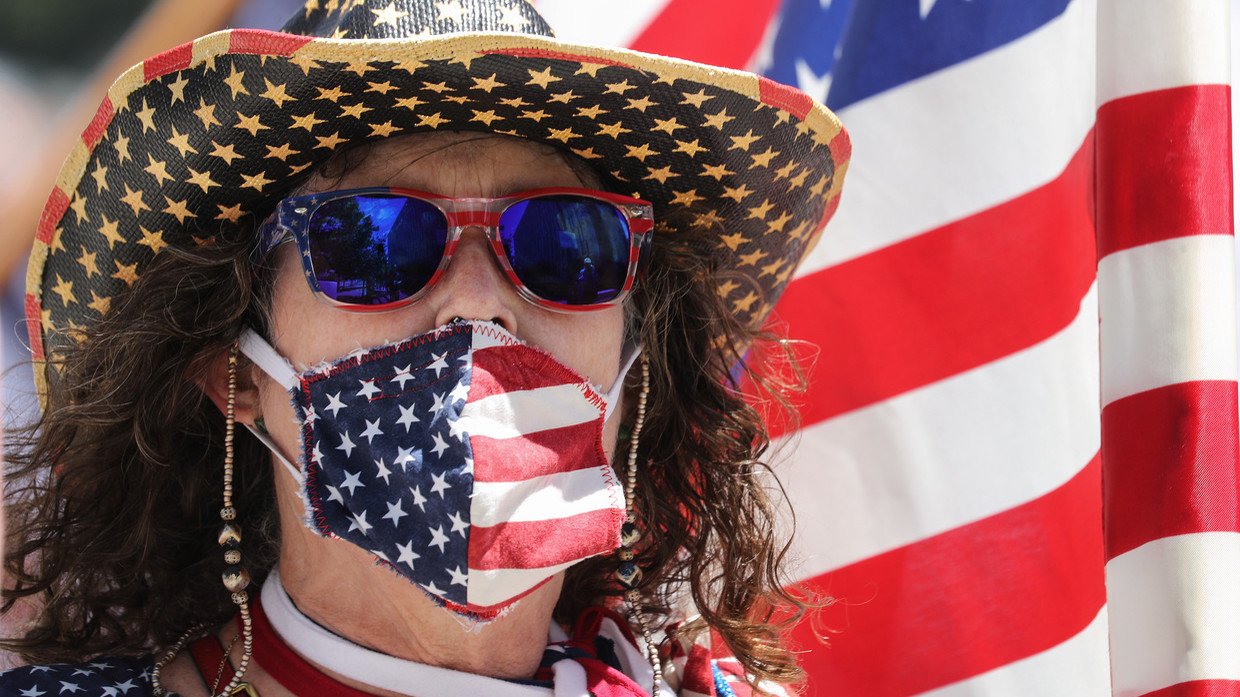Apparently, whether you wear a mask is not simply a reaction to the coronavirus, but a visible statement about your identity and your politics.
Some argue that wearing one differentiates you from uncaring men obsessed with their masculinity. Others insist that the wearing of a mask is a symbol of moral cowardice.
One of the most remarkable features of the politicization of identity is that it can turn the most banal of human acts, like the wearing of masks, into a political issue. The very same people who used to get worked up about abortion or gay marriage are now directing their energy toward hurling abuse at those who stand on the opposite side of the mask debate.
According to one account in Scientific American, some men are worried that wearing a mask makes them look weak, and their self-image is more important to them“than demonstrating responsible behaviour.”
Others decry the fact that, allegedly, a “mask-less face has become a stand-in for manliness”. In their eyes, a mask-less face serves as a marker for racial and gender prejudice. They claim that racial assumptions about Asian countries – where mask wearing is normal – lies behind the anti-mask behaviour of “a certain subset of mostly white, conservative men.”
There are also those who believe that “wearing a mask is for smug liberals”, while “refusing to is for reckless Republicans.” That political polarization corresponds to mask wearing is particularly striking in the United States, where a survey indicates that Democrats are 20 percent more likely than Republicans (75 percent versus 53 percent) to wear a mask in public.
You might say, so what? Who cares? Promoters of identity politics do, for they’ve transformed contrasting attitudes to mask wearing into a political issue.
The fact that mask wearing has become a flashpoint in the culture wars serves as testimony to the degradation of political life in Western societies. The passions that were once devoted to transforming the world or reforming society are now directed to petty squabbles about what it means to wear a mask. One of the unfortunate accomplishments of identity politics is that it makes it impossible to have a grown-up discussion about what is, in fact, a threat to all of humanity.
In this polarized environment, it’s not possible to agree to disagree. Yet, there’s no scientific consensus about the value of wearing a mask. Since the outbreak of the coronavirus pandemic, numerous expert organizations have offered conflicting advice on whether or not a mask can protect from contamination. It is therefore entirely understandable that some have opted to wear a mask while others have decided not to.
Also on rt.com Welcome to the post-Covid future: Face masks, elbow bumps, and the end of freedomI don’t wear a mask because I think it’s unnecessary, but if scientists convince me that it will protect my health, I will immediately grab a piece of cloth and tie it around my mouth.
Unfortunately, instead of getting on with life and accepting the fact that, in the face of a health threat, people behave differently, far too many are determined to politicize attitudes.
One way of understanding the current controversy surrounding the wearing of masks is through the theory of cultural cognition. This theory suggests that when people are confronted with a disputed issue, they will interpret it in accordance with values that define their cultural identities. That’s why those who are against the right to bear arms or hate global-warming sceptics are likely to reach for their mask, whereas those holding the opposite beliefs are less likely to wear one.
The herd-like response incited by identity politics makes it difficult to have an intelligent discussion about how society should respond to the pandemic.
I have no problem with controversy and no-holds barred debate. Public life benefits from the clash of opinion. Unfortunately, society rarely learns from the childish controversies provoked by identity obsessions. Such obsessions often attach themselves to the most trivial of issues, such as body image, fat shaming, colourism or eating meat. The controversy over the mask is only the latest example of a debate that we can well do without.
Think your friends would be interested? Share this story!
The statements, views and opinions expressed in this column are solely those of the author and do not necessarily represent those of RT.


